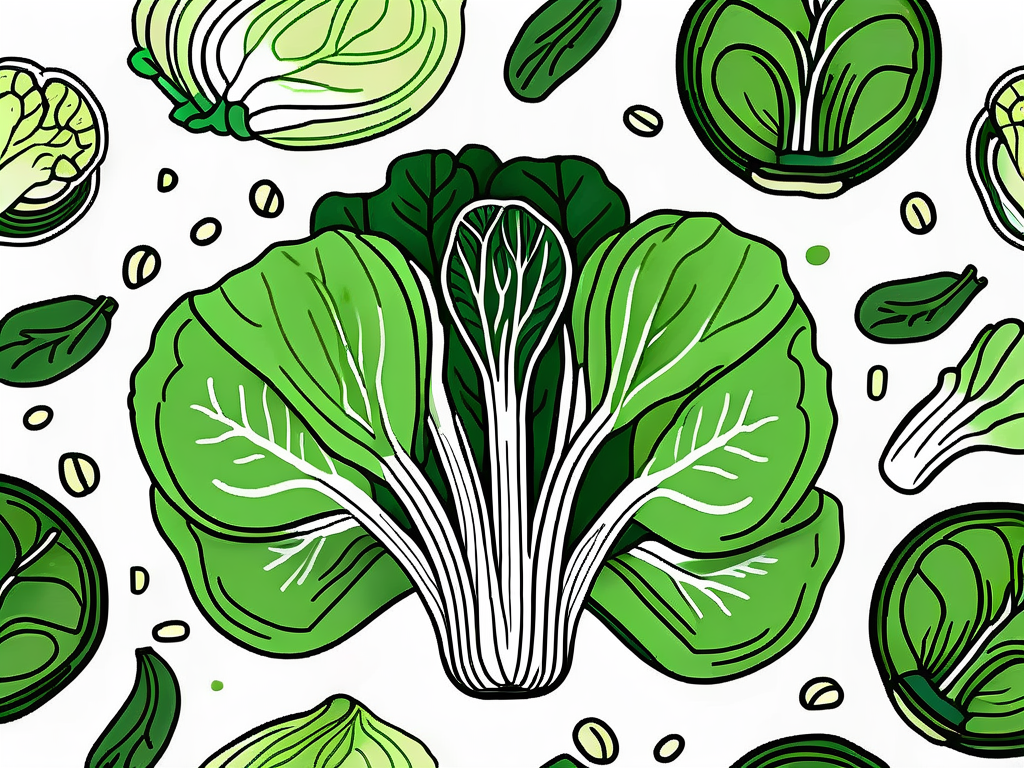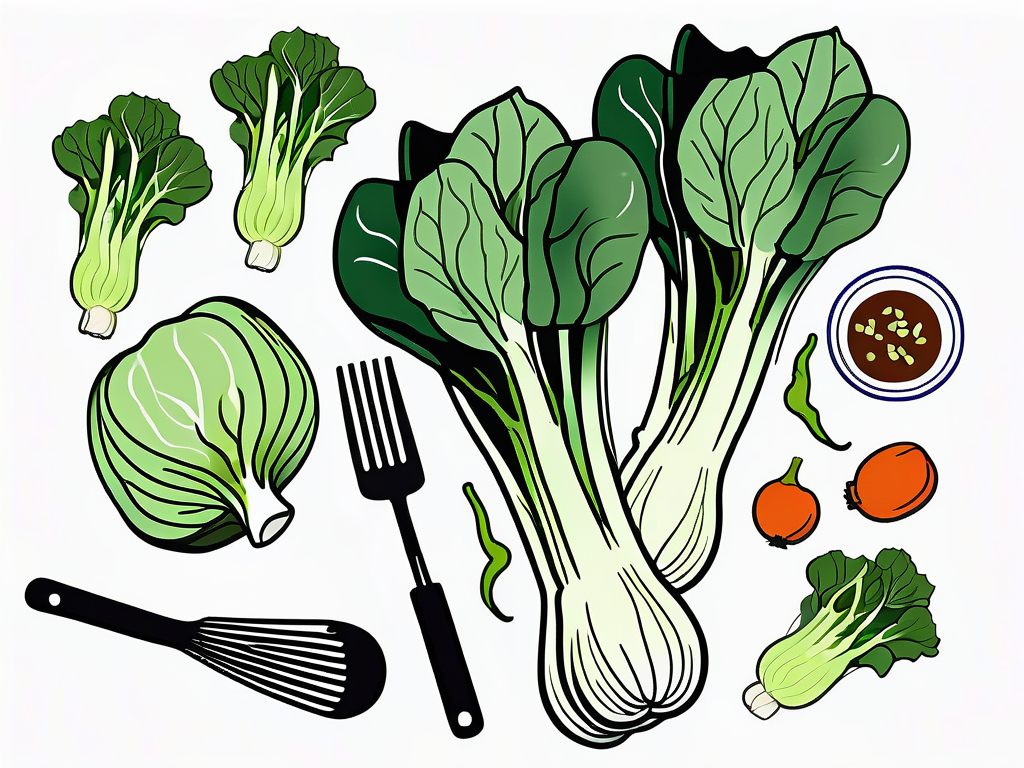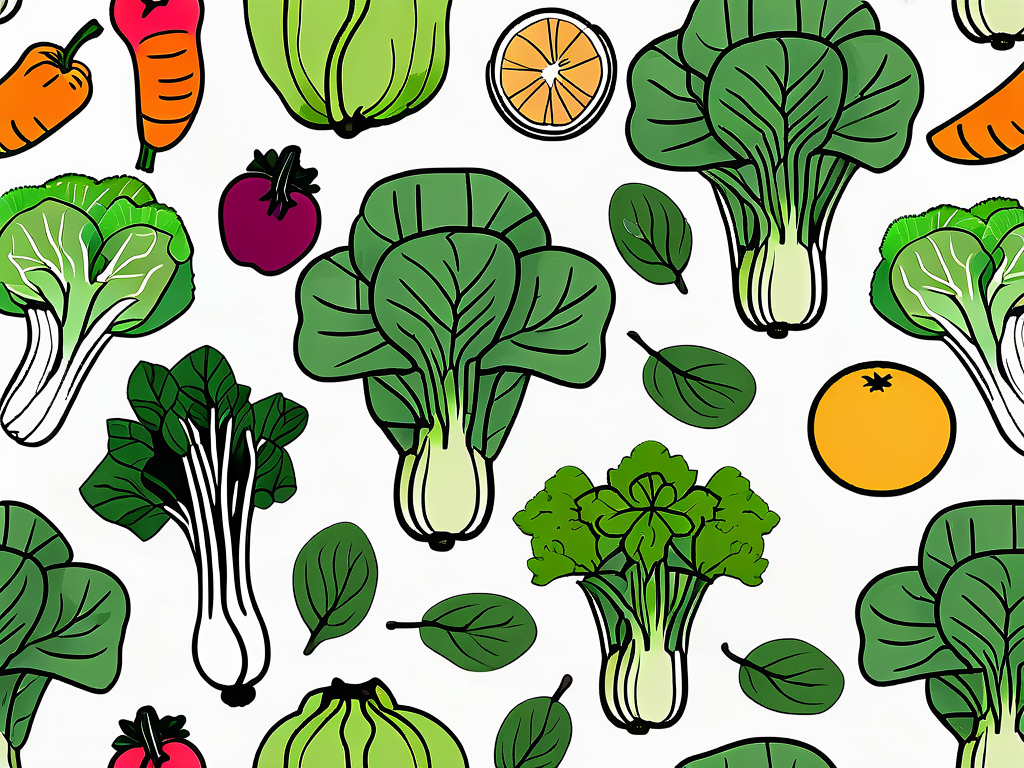Bok Choy is a versatile vegetable that offers several health benefits and is particularly suitable for individuals following a low FODMAP diet. In this article, we will explore the concept of FODMAPs, discuss why some people may need to follow a low FODMAP diet, examine the nutritional profile of Bok Choy, and provide tips on how to incorporate this leafy green into your low FODMAP diet. We will also explore the best practices for preparing and cooking Bok Choy, share some delicious recipes, and highlight the potential health benefits of consuming this nutrient-rich vegetable.
Understanding FODMAPs
FODMAPs are a group of carbohydrates that can trigger digestive symptoms in some individuals. The acronym FODMAPs stands for Fermentable Oligosaccharides, Disaccharides, Monosaccharides, and Polyols. These are short-chain carbohydrates that are not easily absorbed in the small intestine and can be fermented by the gut bacteria. This fermentation process can result in the production of gas, leading to bloating, flatulence, abdominal pain, and changes in bowel habits.
It's important to understand that while FODMAPs can cause discomfort in some people, they are not inherently "bad" or unhealthy. In fact, many high FODMAP foods are nutritious and provide essential vitamins, minerals, and fiber. For individuals who do not experience digestive issues, there is no need to avoid FODMAP-containing foods. However, for those with sensitivities, being mindful of their FODMAP intake can help manage symptoms and improve quality of life.
What are FODMAPs?
FODMAPs are found in a wide range of foods, including fruits, vegetables, grains, dairy products, and sweeteners. Some common examples of high FODMAP foods include apples, peaches, wheat, rye, milk, and honey. For individuals with irritable bowel syndrome (IBS) or other digestive disorders, consuming foods high in FODMAPs can exacerbate symptoms and cause discomfort.
It's worth noting that the FODMAP content of foods can vary depending on ripeness, processing, and portion size. For example, a small serving of a high FODMAP food may be better tolerated than a large serving. Additionally, cooking and preparation methods can sometimes reduce the FODMAP content of certain foods, making them more suitable for sensitive individuals.
Why Some People Need a Low FODMAP Diet
A low FODMAP diet is often recommended for individuals with IBS or other digestive disorders. By reducing or eliminating foods high in FODMAPs from their diet, many people experience a significant reduction in symptoms such as bloating, abdominal pain, and diarrhea. It is important to note that a low FODMAP diet is not a long-term solution but rather a short-term elimination diet designed to identify trigger foods and manage symptoms.
Working with a healthcare provider or dietitian is crucial when embarking on a low FODMAP diet to ensure nutritional adequacy and proper guidance throughout the elimination and reintroduction phases. It's also important to remember that everyone's tolerance to FODMAPs is unique, and what works for one person may not work for another. Keeping a food and symptom diary can be helpful in pinpointing specific triggers and customizing the diet to individual needs.
The Nutritional Profile of Bok Choy
Bok Choy, also known as Chinese cabbage, is a leafy green vegetable that belongs to the cruciferous vegetable family. It is rich in several essential vitamins and minerals, making it a nutritious addition to any diet.

Originally cultivated in China over 5,000 years ago, bok choy has been a staple in Asian cuisine for centuries. Its mild, slightly peppery flavor and crunchy texture make it a versatile ingredient in stir-fries, soups, and salads.
Vitamins and Minerals in Bok Choy
Bok Choy is an excellent source of vitamins A, C, and K. Vitamin A is important for maintaining healthy vision, skin, and immune function. Vitamin C is a powerful antioxidant that supports the immune system and helps the body absorb iron from plant-based sources. Vitamin K is essential for blood clotting and bone health.
Furthermore, bok choy contains phytonutrients such as glucosinolates, which have been studied for their potential anti-cancer effects. These compounds are responsible for the slightly bitter taste of bok choy and other cruciferous vegetables.
In addition to vitamins, Bok Choy is also a good source of calcium, potassium, and folate. Calcium is crucial for strong bones and teeth, while potassium plays a role in maintaining fluid balance and regulating blood pressure. Folate, or vitamin B9, is essential for cell growth and development.
The Caloric Value of Bok Choy
Bok Choy is a low-calorie vegetable, making it an ideal choice for individuals looking to manage their weight. One cup of chopped Bok Choy contains only about 9 calories while providing a rich array of nutrients.
Moreover, bok choy is a hydrating vegetable, with a high water content that can help keep you feeling full and hydrated. Its fiber content also supports digestive health by promoting regular bowel movements and feeding beneficial gut bacteria.
Bok Choy and the Low FODMAP Diet
When following a low FODMAP diet, it is essential to identify foods that are high in FODMAPs and find suitable alternatives. This is where Bok Choy comes in.
Bok Choy, also known as Chinese cabbage, is a member of the cruciferous vegetable family. It is packed with essential nutrients such as vitamin C, vitamin K, and fiber. This leafy green vegetable not only offers a range of health benefits but also adds a delightful crunch to dishes, making it a popular choice in various cuisines.
Why Bok Choy is Suitable for a Low FODMAP Diet
Bok Choy is considered a low FODMAP vegetable, meaning it contains low levels of FODMAPs and is generally well-tolerated by individuals with sensitive digestive systems. This makes it an excellent option for those following a low FODMAP diet.
Moreover, Bok Choy is rich in antioxidants and anti-inflammatory compounds, which can support gut health and overall well-being. Its high water content also helps in hydration, making it a refreshing addition to meals, especially during hot weather.
How to Incorporate Bok Choy into Your Low FODMAP Diet
There are many ways to enjoy Bok Choy while following a low FODMAP diet. You can add it to stir-fries, soups, salads, or even enjoy it steamed as a side dish. Its mild flavor and crunchy texture make it a versatile ingredient that can elevate the taste and nutritional value of your meals.
For a simple yet flavorful dish, try stir-frying Bok Choy with garlic-infused oil, soy sauce, and a sprinkle of sesame seeds. This quick and easy recipe not only enhances the natural taste of Bok Choy but also provides a satisfying umami flavor that pairs well with various proteins like chicken, tofu, or shrimp.
Preparing and Cooking Bok Choy
When preparing Bok Choy, it is important to select fresh and crisp stalks with vibrant green leaves. Here are some tips to help you choose and store Bok Choy:

Choosing and Storing Bok Choy
- Look for Bok Choy with firm stalks and bright green leaves. Avoid wilted or yellowing leaves.
- Store unwashed Bok Choy in a plastic bag in the refrigerator. It will stay fresh for up to five days.
- Before using, rinse Bok Choy under cold running water and pat dry with a paper towel.
Simple and Delicious Bok Choy Recipes
Here are two quick and easy Bok Choy recipes to get you started:
- Bok Choy Stir-Fry:
- Heat oil in a pan and add minced garlic and ginger.
- Add sliced Bok Choy and stir-fry until the leaves wilt and the stalks become tender.
- Season with soy sauce, sesame oil, and a pinch of salt.
- Serve as a side dish or over steamed rice.
- Bok Choy Salad:
- Thinly slice Bok Choy and combine with your choice of mixed greens.
- Add sliced cucumbers, cherry tomatoes, and shredded carrots.
- Toss with a light dressing made from olive oil, lemon juice, and Dijon mustard.
- Garnish with toasted almond slices.
Potential Health Benefits of Bok Choy
In addition to being low in FODMAPs and rich in essential nutrients, Bok Choy offers several potential health benefits.

Bok Choy and Digestive Health
Bok Choy is a good source of dietary fiber, which is important for maintaining a healthy digestive system. Fiber adds bulk to the stool and promotes regularity, which can help prevent constipation. Additionally, Bok Choy contains compounds that may support the growth of beneficial gut bacteria.
Other Health Benefits of Bok Choy
Bok Choy is rich in antioxidants, which help protect the body against oxidative stress and reduce the risk of chronic diseases, such as heart disease and certain types of cancer. Additionally, the high vitamin C content in Bok Choy supports immune function and collagen production, promoting healthy skin and joints.
In conclusion, Bok Choy is a low FODMAP-friendly option that offers numerous health benefits. Its nutritional profile, versatility in cooking, and potential health-promoting properties make it an excellent choice for individuals following a low FODMAP diet or seeking to improve their overall well-being. By incorporating Bok Choy into your meals, you can enjoy its delicious taste while nourishing your body with valuable vitamins, minerals, and fiber.